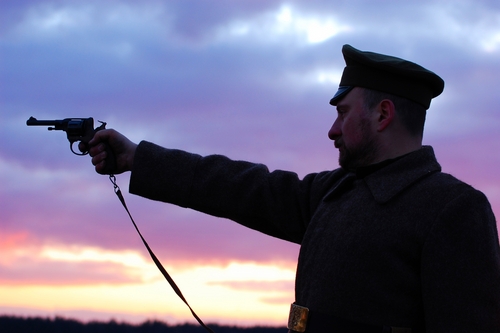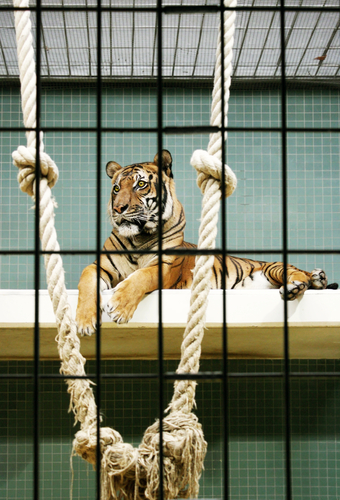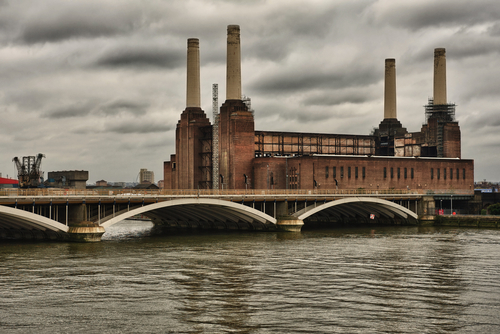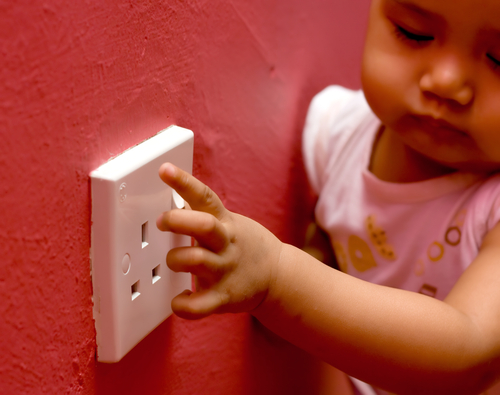In this assessment, you will review your comprehension of English literature and language across Key Stage 3. The assessment will take approximately 45 minutes to complete. This is a timed activity. Don't worry if it takes you longer to complete.
If you need to read the text again, you can do so by clicking on the Help button.
Read the following poem by Thomas Hardy:
The Man He Killed

Had he and I but met
By some old ancient inn,
We should have set us down to wet
Right many a nipperkin!
But ranged as infantry,
And staring face to face,
I shot at him as he at me,
And killed him in his place.
I shot him dead because--
Because he was my foe,
Just so: my foe of course he was;
That's clear enough; although
He thought he'd 'list, perhaps,
Off-hand like--just as I--
Was out of work--had sold his traps--
No other reason why.
Yes; quaint and curious war is!
You shoot a fellow down
You'd treat, if met where any bar is,
Or help to half a crown.
Thomas Hardy (1902)
**********************
Read the following long poem 'My Last Duchess' (1842) by Robert Browningand answer the questions that follow.
*******************
My Last Duchess
That’s my last Duchess painted on the wall,
Looking as if she were alive. I call
That piece a wonder, now; Fra Pandolf’s hands
Worked busily a day, and there she stands.
Will’t please you sit and look at her? I said
“Fra Pandolf” by design, for never read
Strangers like you that pictured countenance,
The depth and passion of its earnest glance,
But to myself they turned (since none puts by
The curtain I have drawn for you, but I)
And seemed as they would ask me, if they durst,
How such a glance came there; so, not the first
Are you to turn and ask thus. Sir, ’twas not
Her husband’s presence only, called that spot
Of joy into the Duchess’ cheek; perhaps
Fra Pandolf chanced to say, “Her mantle laps
Over my lady’s wrist too much,” or “Paint
Must never hope to reproduce the faint
Half-flush that dies along her throat.” Such stuff
Was courtesy, she thought, and cause enough
For calling up that spot of joy. She had
A heart—how shall I say?—too soon made glad,
Too easily impressed; she liked whate’er
She looked on, and her looks went everywhere.
Sir, ’twas all one! My favour at her breast,
The dropping of the daylight in the West,
The bough of cherries some officious fool
Broke in the orchard for her, the white mule
She rode with round the terrace—all and each
Would draw from her alike the approving speech,
Or blush, at least. She thanked men—good! but thanked
Somehow—I know not how—as if she ranked
My gift of a nine-hundred-years-old name
With anybody’s gift. Who’d stoop to blame
This sort of trifling? Even had you skill
In speech—which I have not—to make your will
Quite clear to such an one, and say, “Just this
Or that in you disgusts me; here you miss,
Or there exceed the mark”—and if she let
Herself be lessoned so, nor plainly set
Her wits to yours, forsooth, and made excuse—
E’en then would be some stooping; and I choose
Never to stoop. Oh, sir, she smiled, no doubt,
Whene’er I passed her; but who passed without
Much the same smile? This grew; I gave commands;
Then all smiles stopped together. There she stands
As if alive. Will’t please you rise? We’ll meet
The company below, then. I repeat,
The Count your master’s known munificence
Is ample warrant that no just pretense
Of mine for dowry will be disallowed;
Though his fair daughter’s self, as I avowed
At starting, is my object. Nay, we’ll go
Together down, sir. Notice Neptune, though,
Taming a sea-horse, thought a rarity,
Which Claus of Innsbruck cast in bronze for me!
*******************
Read the following two texts about zoos.

Text 1: We are more than animals!
How inhumane it is that, over a decade into the 21st century, we still keep wild animals in cages to gawp at for our own amusement? Yes, there may be laws about how much space each animal is allowed; there may even be moves to ‘stimulate’ the animals, providing toys and items to keep them amused. But do they ever get the chance to run as they were designed to do? To hunt? To eat a variety of foods, as they would do in the wild? Do they get chance to choose their own mate? To climb trees? To fly?
As humans, we are more than animals: we have the capacity to think things through, to reason, to show compassion and kindness. This is why we have a responsibility to close zoos and only house wild animals out of their natural habitat in large safari parks. If we cannot provide this environment, then they need to be left in the wild, undisturbed, so they can thrive without human interference.
Text 2: Our job is to care.
As zoo keepers, our job is to care for the animals under our protection. We are highly skilled and trained in catering to their individual needs and requirements and we take our responsibilities very seriously. Many of the animals in zoos are not safe when left in the wild. They are constantly at risk from poachers, climate change has left their habitats in ruins and the rising human population means that they regularly ‘fall out’ with their human neighbours. After all, would you like a giant anaconda or a pride of hungry lions living in your back garden?
For all of these reasons, we have an obligation to take some animals into our care, look after them, provide them with a chance to mate and keep their species alive and educate other people about why it is important to look after our planet and the creatures who live here. If we don’t carry out this vital work, we will lose some animal species - forever.
*******************
Reading Fiction: Coketown
Read this description of "Coketown" from the book Hard Times by Charles Dickens:
It was a town of red brick, or of brick that would have been red if the smoke and ashes had allowed it; but as matters stood, it was a town of unnatural red and black like the painted face of a savage.
It was a town of machinery and tall chimneys, out of which interminable serpents of smoke trailed themselves for ever and ever, and never got uncoiled.
It had a black canal in it, and a river that ran purple with ill-smelling dye, and vast piles of building full of windows where there was a rattling and a trembling all day long, and where the piston of the steam-engine worked monotonously up and down, like the head of an elephant in a state of melancholy madness. It contained several large streets all very like one another, and many small streets still more like one another, inhabited by people equally like one another, who all went in and out at the same hours, with the same sound upon the same pavements, to do the same work, and to whom every day was the same as yesterday and tomorrow, and every year the counterpart of the last and the next.

*******************
Read the following extract from a leaflet about creating a safe environment for babies and toddlers, then answer the questions.
How to 'baby-proof' your home.

Your baby probably loves being at home and being able to explore their environment. Unfortunately, the home is also the most common scene of accidents involving small children. That is why it is very important that you read this leaflet on how to make you home safe and follow the guidelines closely.
According to The Royal Society for the Prevention of Accidents, every year more than 5'000 people die in accidents in the home. Do you want one of those people to be your child? Read on for hints and tips to make your home safe.
1) In the kitchen. The kitchen can be a dangerous place for young children. If you can, fit a stair-gate across the door frame to keep children out completely. If this is not an option for your home, use baby locks on the lower cupboard doors, and make sure they cannot climb chairs to get to the work tops. Remove children from the kitchen if the oven or cooker hobs are on. Make sure knives are out of reach, even from tall or climbing toddlers.
*******************
Compare two poems about London
Text One
London
by William Blake

I wander thro' each charter'd street,
Near where the charter'd Thames does flow.
And mark in every face I meet
Marks of weakness, marks of woe.
In every cry of every Man,
In every Infants cry of fear,
In every voice: in every ban,
The mind-forg'd manacles I hear
How the Chimney-sweepers cry
Every blackning Church appalls,
And the hapless Soldiers sigh
Runs in blood down Palace walls
But most thro' midnight streets I hear
How the youthful Harlots curse
Blasts the new-born Infants tear
And blights with plagues the Marriage hearse
Text Two
Extract from
London's Summer Morning
by Mary Robinson
.jpg)
Who has not waked to list the busy sounds
Of summer's morning, in the sultry smoke
Of noisy London? On the pavement hot
The sooty chimney-boy, with dingy face
And tatter'd covering, shrilly bawls his trade,
Rousing the sleepy housemaid. At the door
The milk-pail rattles, and the tinkling bell
Proclaims the dustman's office; while the street
Is lost in clouds impervious. Now begins
The din of hackney-coaches, waggons, carts;
While tinmen's shops, and noisy trunk-makers,
Knife-grinders, coopers, squeaking cork-cutters,
Fruit barrows, and the hunger-giving cries
Of vegetable venders, fill the air.
Now every shop displays its varied trade,
And the fresh-sprinkled pavement cools the feet
Of early walkers...
*******************

